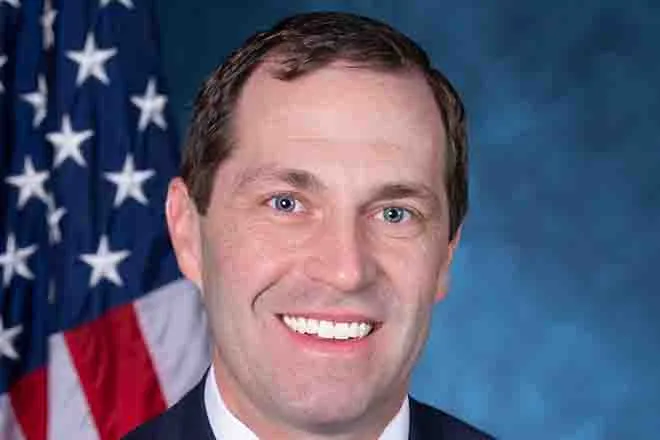
Daily Audio Newscast - August 22, 2025
© AlexLMX - iStock-823000260
Six minutes of news from around the nation.
Gov. Gavin Newsom signs redistricting plan to counter Texas' new congressional map; Trump says law enforcement crackdown will 'go on to other places' during appearance at police facility in DC; Study: NC ranks poorly for state victim compensation programs; IN rural care gets federal funding lift; ND prepares for new Medicaid work requirements; Lawmakers weigh Michigan's financial outlook post-OBBB.
TRANSCRIPT
The Public News Service Daily Newscast, August 22, 2025.
I'm Mike Clifford.
Governor Gavin Newsom signed California's new redistricting plan that could slash five Republican-held House seats to counter Texas' mid-decade redraw of its congressional map.
That from ABC7 Los Angeles.
They report California Democrats introduced a plan last week that could slash the five GOP-held seats in the liberal-leaning state, while bolstering Democratic incumbents in other battleground districts.
And from CNN, President Trump said Thursday he would expand the law enforcement and National Guard crackdown he ordered for Washington, D.C. this month to other jurisdictions, as he appeared at a U.S.
Park police facility to promote the initiative.
CNN notes that Trump spent little more than half an hour there, bringing hamburgers to the White House and pizza from Wiseguy Pizza.
We head next to North Carolina, where the state's crime victim compensation program ranks second worst in the nation, according to a new analysis.
Victims of violent crime have access to compensation, but their experience with compensation programs varies widely by state.
The Center for American Progress and Common Justice measured state programs based on criteria like accessibility and whether compensation is adequate.
Report co-author Chandler Hall at the Center for American Progress says states get a 75 percent match in federal funding, but have a lot of discretion to set their own policies for these programs.
The report says North Carolina puts up unnecessary barriers to compensation, such as mandatory police reporting without alternative mechanisms.
Hall says it's also one of the few states that can deny payments based on a victim's criminal record.
If we are barring the very individuals who might get the most benefit out of this kind of relief and otherwise who would be further disenfranchised by their harm, their trauma without financial support, we're only making our communities less safe.
The report found black victims of crime are disproportionately denied compensation in many states.
I'm Eric Tagadoff reporting.
And Indiana communities are receiving nearly three million dollars in new federal support to help kids, parents and pregnant people enroll in Medicaid and the Children's Health Insurance Program.
The details now from our Joe Ulori.
The funding comes from the Centers for Medicare and Medicaid Services through the Connecting Kids to Coverage Program.
Assistant Professor of Health Policy and Management at Indiana University's Fairbanks School of Public Health Jill Enderstraut says rural Hoosiers face unique challenges.
Rural Hoosiers are at a disadvantage.
We know that rural Hoosiers have poor health outcomes and they're also more likely to be uninsured.
Rural hospitals are closing very quickly and rely on Medicaid dollars to keep them supported.
The Indiana Rural Health Association oversees the grant.
Supporters of the funding say it will help families access care, while critics question whether communities should rely so heavily on federal funding for basic services.
This is Public News Service.
A little more than a year from now, new Medicaid work requirements kick in.
They're part of the domestic policy law approved by congressional Republicans.
By December 31st of next year, states must implement work requirements for adults receiving Medicaid coverage if they fall under an expanded program.
Each month they'll have to do 80 hours of work, school, or volunteering to stay eligible.
Sarah Aker with the Department of Health and Human Services says roughly half of these recipients in North Dakota already work, with others meeting separate benchmarks.
Still, she says outreach is needed.
We anticipate doing a lot of education over the next year about this.
They should expect to get more mail from us informing them of these changes.
We'll also be doing a lot of updates to our website.
She expects extra communication with providers, assistance groups, and local public health leaders.
Inker doesn't think North Dakota will feel the effects as much as other states with 3-5 percent of recipients here at risk.
I'm Mike Moen.
Meantime, Michigan lawmakers are calling out the new federal budget, aka the big beautiful bill act, as harmful to working families and the state budget.
Officials warn the bill could strain state services, noting Michigan Supplemental Nutrition Assistance Program, or SNAP, has an error rate above 9 percent that could leave the state on the hook for food benefit costs and administrative burdens.
Speaking at a virtual press conference with Michigan lawmakers, State Representative Sean McCann stressed rural healthcare could be hit hardest.
The Hospital Association of Michigan, when they are consistently saying that this bill is going to create a serious healthcare access problems in the state of Michigan, especially in rural Michigan where hospitals have up to 40 percent of their patients be Medicaid patients.
Supporters argue the law strengthens the economy, pointing to seven to almost $10,000 in projected take-home pay gains for a typical Michigan family, and tax relief averaging over $3,000 per taxpayer in 2026.
They say those benefits will help families cover higher costs and protect jobs statewide.
Crystal Blair reporting.
Finally, North Carolina lawmakers want to follow the federal government's lead on exempting taxes on tips in most cases, but critics of the policy say the minor benefits would only help a small number of workers.
The version in North Carolina would allow a deduction of up to $5,000 in tips annually.
However, Sally Hodges-Koppel with the North Carolina Budget and Tax Center says that impacts a small number of workers.
That North Carolina House proposal is expected to reach just about 2 percent of North Carolina households.
And the most financial benefit that they would receive is $200 a year.
One bill in the North Carolina General Assembly would raise the minimum wage in the state to $18 an hour, which would raise wages for about a quarter of workers in the state by an average of $3,700 a year.
The One Big Beautiful Bill Act passed in July allows workers to deduct up to $25,000 a year from their taxable income.
This is Public News Service.

















